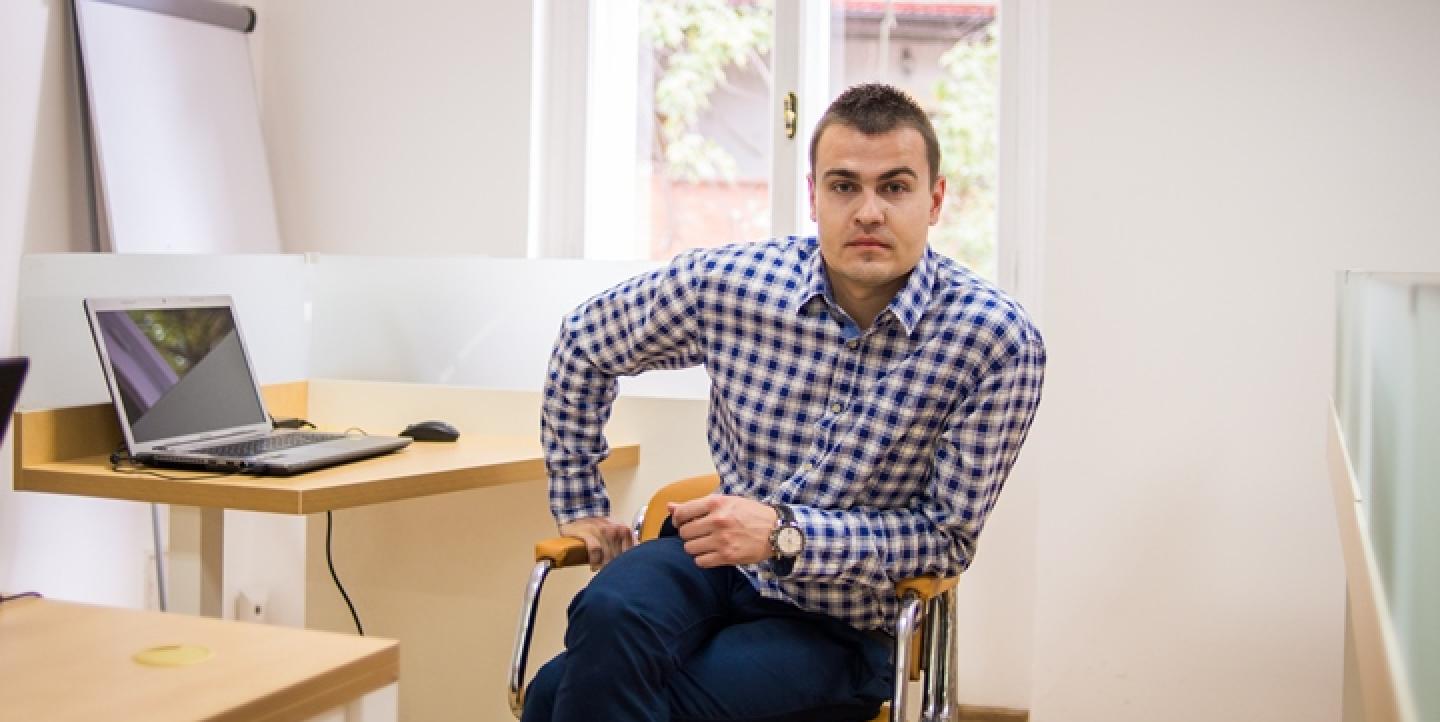Each month, IJNet features an international journalist who exemplifies the profession and has used the site to further his or her career. If you would like to be featured, email a short bio and a paragraph about how you have used IJNet here.
Ukrainian journalist Andrii Bystrov began his career as a print journalist, covering automotive and sports beats — a far cry from the work he does today as an editor at the TV channel "Ukraine."
But this work, which often consisted of covering road safety legislation, prepared him well for ICFJ’s Journalists’ Fellowship and Workshop on Road Safety, which he discovered on IJNet’s opportunities section. The fellowship allowed him to attend the World Health Organization (WHO)’s Global High-Level Conference on Road Safety in Brasília, Brazil last November.
These days, Bystrov also trains the next generation of journalists at the SOM. School of Media in Kiev, where he is a co-founder and journalism lecturer. When the school sought applications for its scholarship for journalists from the Lugansk and Donetsk regions, IJNet posted the opportunity in Russian.
“Thanks to this, we found four fellows with strong motivation who started their free education in January,” Bystrov said. “They are journalists who have been forced to leave their cities due to the war, but who want to remain in their profession and adapt to new realities.”
IJNet spoke with Bystrov about the WHO road safety conference, his work at SOM. School of Media and lessons learned from both:
Tell us about your experience at the WHO's Road Safety conference.What lessons did you learn during the conference that help you today?
Participating in the conference was a landmark event in my journalistic career. First of all, it was important to understand that my job as a journalist and road safety activist was seen and assessed by experienced colleagues. For me, it was very important to represent my country on an international stage.
Before my trip to the conference in Brazil, I took part in Road Safety Week 2016 in Ukraine. In Brazil, I conducted a series of interviews, speaking with delegates from other countries. I participated in the plenary sessions, discussions, a master class for journalists and prior webinar. In Brasília, I made a television program that raised questions about the safe movement of public transport, comparing them with Ukrainian road traffic issues. I also gave an extensive interview to the famous Ukrainian radio station Radio Vesti with a detailed story about the conference. The conference allowed me to learn practical knowledge of foreign methods that reduce the accident rate, the latest legislative initiatives and road safety promotion techniques. It was an invaluable journalistic experience, and improved the quality of my everyday work covering national news at the TV channel Ukraine.
You teach at SOM. School of Media. What lessons do you try to give to your students?
The school aims to help young journalists from eastern Ukraine to increase their theoretical knowledge and practical skills. And most importantly, because many students have been displaced, to encourage them to stay in the profession. I always tell my students that journalism is the most interesting job in the world, but also the most demanding. So be honest firstly with yourself and do not be a mouthpiece for propaganda.
What advice would you give to fellow journalists?
That your work is very important, and you have your own unique audience, so work without looking at the huge international media corporations. Don’t stop there — always continue your creative pursuits. It is the only way you will increase your quality of work as a journalist. Believe that you can write the best article, get an interview with the most interesting people and qualify for the most valuable training. And remember that among the critical flow of news from your viewers and readers, you must always be hopeful and positive!
This interview has been edited and condensed.
Main image courtesy of Andrii Bystrov.

